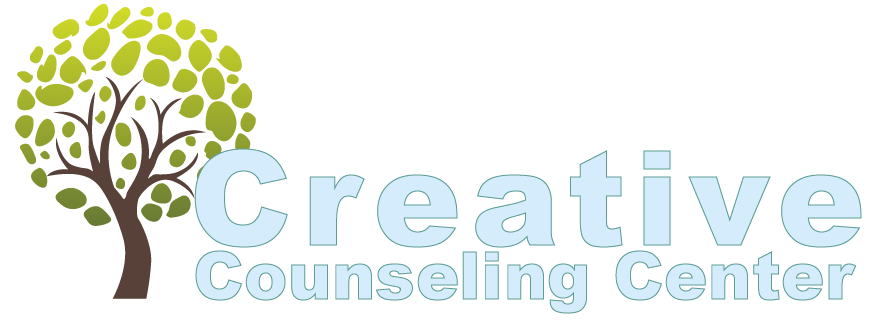4 Self Care Tips For Adult Introverts
If you’re an introvert, you probably struggle with feeling overwhelmed in a world that seems built for extroverts. This article shares 4 self care tips for introverts. But first…
How do you know you’re introverted? As described in our article , introverts tend to recharge their natural energy by spending time alone. Extroverts, on the other hand, recharge by spending time with others.
Introverts may feel drained by group meetings at work where they’re encouraged to speak up. They would rather stay home alone or with family than do small talk at the neighborhood block party. Or they keep their dead earbuds in their ears so no one approaches them at the gym. Or they need a vacation after returning from vacation with friends. Even having to “partner up with your neighbor” at a seminar is the last thing an introvert wants to do. These and other interactions drain an introvert of their precious energy.
Of course, feeling exhausted by constant social interaction is no fun. So, in this article, we dive into 4 self care tips for the more introverted folks among us.
4 Self Care Tips for Introverts
If you struggle to find time to recharge your energy levels, try these 4 self care tips for introverts:
Tip #1 Journal
Do you ever feel like your thoughts won’t slow down, no matter how hard you try? If so, you, like most introverts, are may be an overthinker. There’s a scientific explanation for why turning the volume down in your head is so hard.
Researchers from the University of Iowa looked at electrical activity in the brains of introverts and extroverts. They found that the brains of introverts exhibited higher activity levels. This was true even when the subjects were at rest or engaged in a task!!
This evidence suggests that introverts process information faster than extroverts. This may explain why overthinking is a common behavior among introverts.
To calm your restless mind, try journaling as a way to slow down and connect with your inner world.
Try writing about thoughts and feelings, or scribbling a poem, or doodling. You’ll likely experience a better mood, reduced anxiety, and a quiet mental calm that allows you to recharge.
Take Action: Pick out a notebook on your next shopping trip. Make time that day to explore your thoughts, feelings, and ideas with pen and paper.
Tip #2 Take a Walk in Nature
Walking in nature offers both physical and mental health benefits.
Researchers investigated the effects of exposure to nature on physical and psychological stress indicators. They found walking in nature resulted in lower cortisol levels and improved mood.
Research has also suggested that the psychological well-being of a population can be associated with how close it is to areas with green vegetation or bodies of water.
Although these benefits are great for anyone, nature walks offer additional benefits to introverts. Quiet solitude provides plenty of physical and mental space to be alone with your thoughts, a vital aspect of self-care for those who are easily over-stimulated by their environment.
Take Action: Use Google Maps to find a pleasant green or open space near your home. You can search for parks, gardens, biking paths, forests, and outdoor recreation areas. Plan a trip to one of these locations within the next week.
Tip #3 Take a Break from Stimulation
Introverts need solitude to refuel their social battery. But in an era with near-constant stimulation, finding the space to experience solitude can be difficult.
Even if you’re physically alone, the Internet means we have near-constant social and psychological connection to others via YouTube, audiobooks, streaming music, or watching TV.
Centering yourself requires pulling the plug on all sources of stimulation, even if it’s only for a few minutes.
Take Action: The next time you want to decompress, find a place where you can be alone, with the TV off and your phone silenced, and take a few minutes to reconnect with your inner world.
Tip #4 Practice Mindfulness
The concept of mindfulness is intimidating for many people. Especially to those who find it difficult to silence their mind. Mention “ mindfulness ” or “meditation,” and your mind may jump to thoughts of a Buddhist monk meditating on the side of a mountain.
While most Buddhist monks probably do regularly engage in mindfulness meditation, the practice has also found its way into mainstream culture. And it’s not as daunting as you think.
Mindfulness simply means practicing being aware of our thoughts, feelings, and environment in the moment. No judgment or focusing on the past or future. And no incense or chanting required.
Several studies have examined the benefits of mindfulness meditation on physical and mental health. One study investigated the effects of mindfulness on stress indicators. Researchers found that participants who were taught mindfulness techniques showed less psychological strain, had fewer health complaints, and a more positive mood.
Take Action: Check out “ Getting Started with Mindfulness ” for how-to instructions for beginners.
Introverts make up around one-third to a half of the U.S. population. If you’re among this group, practicing self-care is an excellent way to re-center yourself in an extrovert-focused society.
Introverts who don’t refuel their energy levels tend to run on fumes and often feel exhausted. But following any of the 4 tips for the adult introvert above can help. If you’re struggling with constant feelings of overwhelm despite a healthy self-care routine, you may benefit from structured counseling with one of our highly experienced therapists.
CONTACT CREATIVE COUNSELING CENTER
At Creative Counseling Center, we like to think we have the most effective therapists in the DTC area. We want to support you with whatever challenges you are facing. Request a Free Phone Consultation by completing the brief form below and a member of our team will contact you. Together, we can determine whether our practice and one of our therapists is a good fit for you. We have openings this week and look forward to hearing from you.
Contact Us
We will get back to you as soon as possible.
Please try again later.

ABOUT THE AUTHOR
Teri Karjala is a Licensed Professional Counselor & Marriage and Family Therapist. She is the founder and Executive Director of Creative Counseling Center, LLC. Working in the field since 1999, Teri and her team of therapists specializes in counseling for those who have experienced trauma. They work with children as young as age 2, as well as teens and adolescents, adults, seniors, families, and couples.
REQUEST A FREE CONSULTATION
If you have questions about counseling, would like to find out if counseling could help you or a loved one, or are interested in learning more about our services, just complete the brief form below to request a Free Phone Consultation. A member of our team will contact you shortly. After a brief conversation, we'll determine together whether our practice is right for you and which therapist may be best suited for your specific circumstance.
Finding the right therapist, one you click with, is less about the therapist's experience and qualifications and more about the therapist's personality. So let's talk. Let us match you with a therapist you have a high likelihood of clicking with.
Fields marked with an * are required.
Contact Us
We will get back to you as soon as possible.
Please try again later.
GET SOCIAL WITH US
CONNECT WITH US
PHONE
EMAIL US
ADDRESS
6021 South Syracuse Way, Suite #216
Greenwood Village, CO 80111
OFFICE HOURS
Monday-Thursday: 8:30am-8pm
Friday: 12pm-5pm
Saturday: 12pm-4pm



